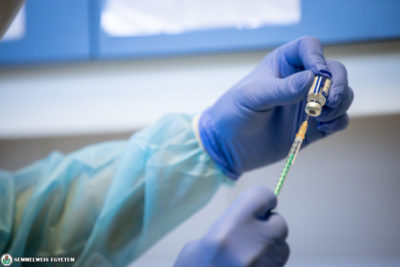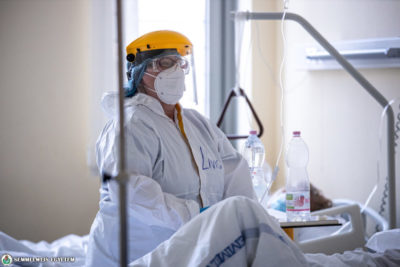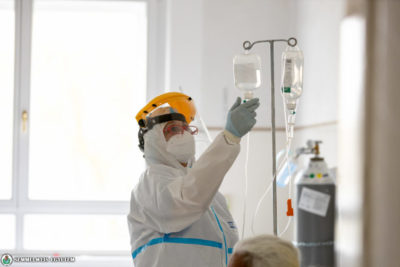“In the case of patients with severe or inadequately treated asthma, COVID-19 infection may be more severe and pose a higher risk. Therefore, in their case it is of paramount importance to follow the recommended precautions and to be vaccinated”, highlighted Dr. Lilla Tamási, Professor, Deputy Head of the Department of Pulmonology at Semmelweis University on the occasion of World Asthma Day on 5 May. During the epidemic, the appropriate treatment of the disease and the regular use of inhalers are very important. There are about 310,000 asthmatic patients in Hungary, an estimated 5-10% have severe asthma.
“The exact causes of asthma are not known, but hereditary, genetic traits are likely to play an important role. Living in cities and the negative effects of civilization also factors increasing the incidence of the disease. Asthma is a persistent inflammatory disease of the lower respiratory tract with symptoms such as choking, coughing, shortness of breath, wheezing caused by bronchospasm, and a humming noise in the chest. These often occur only at dawn or during exercise, therefore, asthma is considered a variable disease where asymptomatic and symptomatic periods alternate”, said Dr. Lilla Tamási, Professor, Deputy Head of the Department of Pulmonology.
The disease has varying degrees of severity, and air pollution, pollens, respiratory viral infections, mental stress, exercise, and allergens may be responsible for the severity of the symptoms. Some adults with asthma also have allergies, therefore it is particularly important for patients to consult their physician to get an exact diagnosis and find out the real cause of the symptoms. While allergies can be seasonal, asthma is an incurable, chronic health problem but treatment can help ease the symptoms.
The diagnosis is set up by a specialist, using respiratory function tests, which are available specialized pulmonary outpatient clinics throughout Hungary. The outpatient clinic for patients with severe asthma at the Department of Pulmonology of Semmelweis University accepts patients by prior appointment with a physician. Consultation and referral can be provided by a pulmonologist at a pulmonology outpatient clinic.
 Dr. Lilla Tamási emphasized that in the current epidemic situation, asthmatic patients infected with COVID-19 should keep using their regular inhaler. In the case of asthmatic patients, it may be more difficult to recognize viral infection, as several symptoms may be identical to those of the underlying disease: cough, shortness of breath, chest pressure. However, properly treated patients (with regular preventive inhalation therapy) do not have a higher risk of getting infected than those who do not suffer from this respiratory disease.
Dr. Lilla Tamási emphasized that in the current epidemic situation, asthmatic patients infected with COVID-19 should keep using their regular inhaler. In the case of asthmatic patients, it may be more difficult to recognize viral infection, as several symptoms may be identical to those of the underlying disease: cough, shortness of breath, chest pressure. However, properly treated patients (with regular preventive inhalation therapy) do not have a higher risk of getting infected than those who do not suffer from this respiratory disease.
Medical care of asthma differs from person to person, with the aim of achieving a good quality of life without symptoms and the prevention of possible seizures. 90% of patients can become asymptomatic with appropriate treatment and adherence to the so-called maintenance therapy on a daily level. Therapy is based on inhaled corticosteroid drugs. In case asthmatic symptoms still occur despite the regular application of the maintenance therapy, these should be treated with the so-called anticonvulsant drugs, which provide quick release with shorter duration.
As Professor Dr. Lilla Tamási pointed out, 15,000 people have severe asthma in Hungary. They will not be completely asymptomatic; sometimes they need steroids and could even be hospitalized. However, due to the available treatments in Hungary, including modern biological therapies, the situation of patients with severe asthma has also improved considerably.
Eszter Csatári-Földváry
Photo (featured image), illustration: Attila Kovács – Semmelweis University
Translation: Katalin Illés-Romhányi


